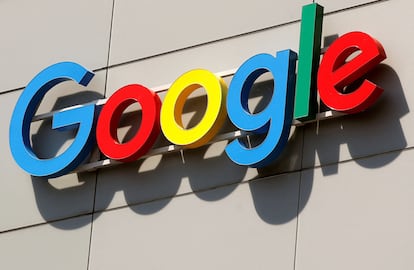Google reaches tentative settlement with all 50 states over alleged app store monopoly
The agreement, cited in a court filing reached Tuesday, is subject to approval by the attorneys general and board of directors of Google’s parent company, execution of an agreement and court approval

All 50 states, the District of Columbia and Puerto Rico have reached an agreement in principle with Google to settle a lawsuit filed in 2021 over the tech giant’s alleged monopolistic control of app distribution for the software that runs most of the world’s cellphones.
The agreement, cited in a court filing reached Tuesday, is subject to approval by the attorneys general and board of directors of Google’s parent company, execution of an agreement and court approval.
Terms of the temporary pact bar the parties from disclosing its details for now, according to the Utah attorney general’s office, a lead plaintiff in the bipartisan.
“No company is too big to play by the rules, including Google. We brought this lawsuit because it is illegal to use monopoly power to drive up prices,” New York’s attorney general, Letitia James, said in a statement. The bipartisan group “fought for a fair marketplace that encourages competition, innovation, and lower prices for consumers,” she said, and look forward to “finalizing the agreement and sharing more details in the next 30 days.”
Google spokesperson Peter Shottenfels said the company had “no comment at this time.”
A trial date had been set for Nov. 6.
The complaint filed initially by 36 states and the Distict of Colombia in Northern California federal court echoed similar allegations that mobile game maker Epic Games made against Google that is scheduled to go to trial in November.
Apple prevailed in a separate suit Epic filed against it over the separate app store it runs exclusively for iPhones, with a federal appeals court upholding in April its sole control of app distribution.
Google still faces several major antitrust lawsuits filed by the Department of Justice and other government agencies across the U.S. focused on alleged search-related and advertising market monopolistic behavior. Justice’s search-related case is set for trial on Sept. 12.
In November, Google settled with 40 states over the tracking of user location, paying $391 million.
The Utah-led suit was among actions taken in recent years to try to curtail the enormous power amassed by Google, Apple, Facebook and Amazon, which have built unprecedented digital empires by corralling consumers into services with minimal competitors.
Like the Epic lawsuit, the states’ lawsuit focused primarily on the control Google exerts on its Play app store so it can collect commissions of up to 30% on digital transactions within apps installed on smartphones running on the Android operating system. Those devices represent more than 80% of the worldwide smartphone market.
Although its app commissions are similar to Apple’s, Google has tried to distinguish itself by allowing consumers to download apps from other places than its Play store. Apple, by contrast, doesn’t allow iPhone users to install apps from any other outlet than its own store.
But the states’ lawsuit took issue with Google’s claim that its Android software is an open operating system that allows consumers more choices. It contended Google has set up anticompetitive barriers to ensure it distributes more than 90% of the apps on Android devices — a market share that the attorneys general argued represented an illegal monopoly.
Lawsuits the Mountain View, California, company is still fighting include a landmark case brought by the U.S. Justice Department in 2020 focused on alleged abuses of Google’s dominant search engine and its digital ad network, which generates some $100 billion in annual revenue for its corporate parent, Alphabet Inc.
Sign up for our weekly newsletter to get more English-language news coverage from EL PAÍS USA Edition
Tu suscripción se está usando en otro dispositivo
¿Quieres añadir otro usuario a tu suscripción?
Si continúas leyendo en este dispositivo, no se podrá leer en el otro.
FlechaTu suscripción se está usando en otro dispositivo y solo puedes acceder a EL PAÍS desde un dispositivo a la vez.
Si quieres compartir tu cuenta, cambia tu suscripción a la modalidad Premium, así podrás añadir otro usuario. Cada uno accederá con su propia cuenta de email, lo que os permitirá personalizar vuestra experiencia en EL PAÍS.
¿Tienes una suscripción de empresa? Accede aquí para contratar más cuentas.
En el caso de no saber quién está usando tu cuenta, te recomendamos cambiar tu contraseña aquí.
Si decides continuar compartiendo tu cuenta, este mensaje se mostrará en tu dispositivo y en el de la otra persona que está usando tu cuenta de forma indefinida, afectando a tu experiencia de lectura. Puedes consultar aquí los términos y condiciones de la suscripción digital.








































